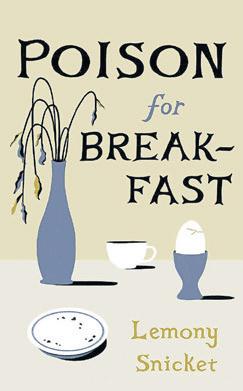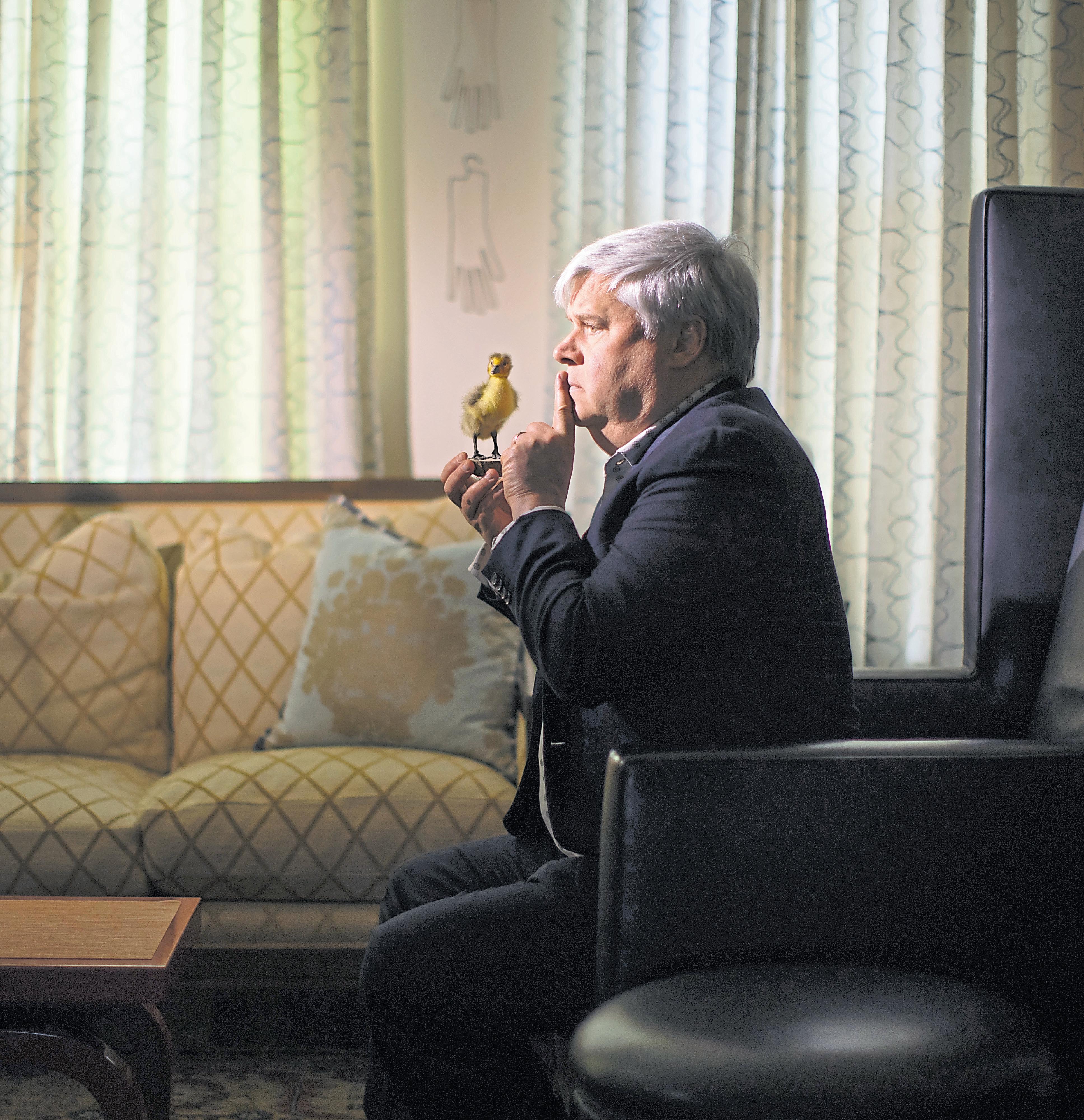
3 minute read
Bewildered or not, Daniel Handler knows when to get his Snicket on
BY SAMANTHA DUNN
If you are a child, have a child or were once a child, chances are you know all about Lemony Snicket and his “A Series of Unfortunate Events,” both the books and the Netflix series. This summer, Snicket released a new book called “Poison for Breakfast,” which begins with a note slipped under his door announcing that he has just had ... yep. What follows in this adventure tale for all ages are bewildering clues, beguiling mysteries and musings on creativity and mortality.
There might or might not be a crime in this book. But there are no tragic Baudelaire orphans. And it is most certainly not one of the novels by the writer Daniel Handler (which include “Why We Broke Up” and “We Are Pirates”), even though Handler is Snicket, and Snicket is Handler. Snicket is not married to book illustrator Lisa Brown and does not have a son named Otto, which Handler is and does.
Bewildered yet? Good, says Handler. That is just where you should be.
QThe pandemic has certainly been a bewildering time. Is “Poison for Breakfast” a product of that?
AThere were some last little edits that happened during the pandemic, but it was finished before anyone had any grasp that it could happen. I am a little embarrassed to say that I exist in a state of bewilderment. Pandemic or no pandemic, I never have any idea what’s going on.
QHow do you know whether to write as Daniel or Lemony?
AIt always seems perfectly clear to me. And although there was much talk on the publishing and marketing end about whether this book is for adults or for children, there was not a question about whether it was by Lemony Snicket or by me. I know pretty quickly what hat I’m wearing.
QYou’ve often said how much you enjoy writing in libraries. How did you manage during the pandemic?
“Poison for Breakfast” is the latest book written by Lemony Snicket, right, Daniel Handler’s alter ego.

ABetween libraries and cafés, which is how I write most of the time, it was a little tough. This is a little embarrassing, but I would pack up my stuff in my office. I would zip up my notebook in my little bag, and I would walk across my house to our breakfast table and sit down and put on music. I would kind of try to create the illusion that I had gone someplace, that I commuted. It wasn’t super successful.
QSan Francisco plays a role in some of your books — “Bottle Grove” in particular — but the aesthetic of that city is always with you. Do you think that’s part of your DNA as a writer?
AI think it can’t help but be, in many ways. I grew up here, and I have a pretty hysterical love for the city. I’m often saying things like, “Oh, you can’t get this anywhere but San Francisco!” And someone will say, “That’s wrong. That’s green tea. It’s actually from Japan, and you can get it anywhere.”
But I think there’s something about the physicality of the city, the terrain and the weather — and its spirit, for lack of a less corny term. I grew up in a city in which many different cultures and subcultures were bumping up against one another and all trying their best, a city that was very open about love and sexuality. And I think that’s all very, very much part of who I am.
QWhat’s it like seeing your work adapted to the screen?
AFor something as enormously and lavishly done as the Snicket media, it’s very collaborative. Not just the writing of the screenplays, but there are people acting out words and building the sets, composing the music, playing and recording the music. Every little piece of it is immensely collaborative.
It was really nice to go to the set of Netflix and talk with some of the costume designers about how happy they were to get to make things up. One of them said, “I’ve done so many cop shows. Just the idea that now I get to build these ridiculous things — (It’s) what I’ve always wanted to do.” That’s really fun for me.
QWhat are you reading right now? What should we be reading?
AOh my goodness. (I’m reading) two books by a poet named Dorothea Lasky — a book of her poems called “Rome” that I’m rereading and a tiny little book called “Animal.” I think poetry is a great way to interact with your own brain and your own consciousness. So I’m always reading a book of poetry alongside whatever novel or whatever else I might be reading.











